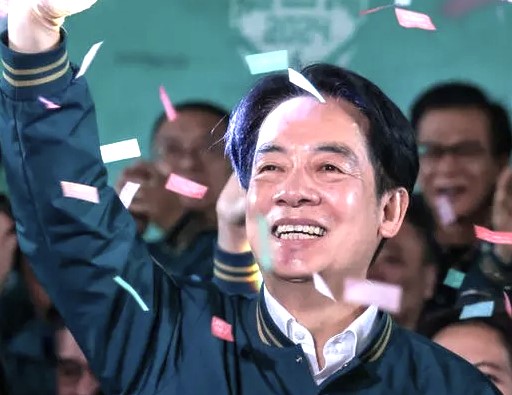Taiwan's Historic Election: William Lai Elected President Amidst Growing Tensions with China
 |
The election outcome is poised to irk Beijing, which has labeled Mr. Lai a "troublemaker" due to his advocacy for independence, challenging China's claim over self-ruled Taiwan. While China has called for "peaceful reunification," it has not ruled out the use of force, framing the election as a choice between "war and peace."
The communist government in Beijing has consistently criticized Lai's Democratic Progressive Party (DPP), which has governed Taiwan for eight years. China's increased military presence around the island has fueled concerns about a potential conflict.
Breaking new ground, Mr. Lai secured an unprecedented third consecutive presidential term for the DPP. In his first post-victory remarks, he emphasized the irreversible trajectory the country is taking. "The country will continue to walk the right path forward. We will not look backward," Lai declared in a press conference.
Addressing a jubilant crowd in Taipei, Lai characterized his win as a triumph of democracy. "We've done it. We didn't let external forces influence our election. That's because we decided that only we can choose our president," he proclaimed, responding to earlier accusations from Taiwan about Chinese interference.
However, Lai also conveyed a message of openness to China, advocating for more exchanges and dialogue over conflict. He called for peace and stability with Beijing while asserting his commitment to maintaining the cross-strait status quo and safeguarding Taiwan from threats.
Despite his past support for Taiwanese independence, considered a red line for Beijing, Lai stressed that he would not pursue it as president. Securing 40% of the vote, Lai comfortably outpaced his main opponent, Hou Yu-ih of the Kuomintang (KMT) party, known for its friendlier stance towards Beijing.
The election also saw the rise of maverick politician Ko Wen-je from the Taiwan People's Party, capturing a quarter of the vote and appealing to the younger demographic.
In tandem with the presidential election, voters also selected their legislature, resulting in the DPP losing its majority. While the opposition gains ground, no single party has garnered enough seats to control the parliament, signaling potential challenges in governing Taiwan with an opposition-dominated legislature and a DPP president. Observers anticipate increased complexities in the governance process.


Social Footer